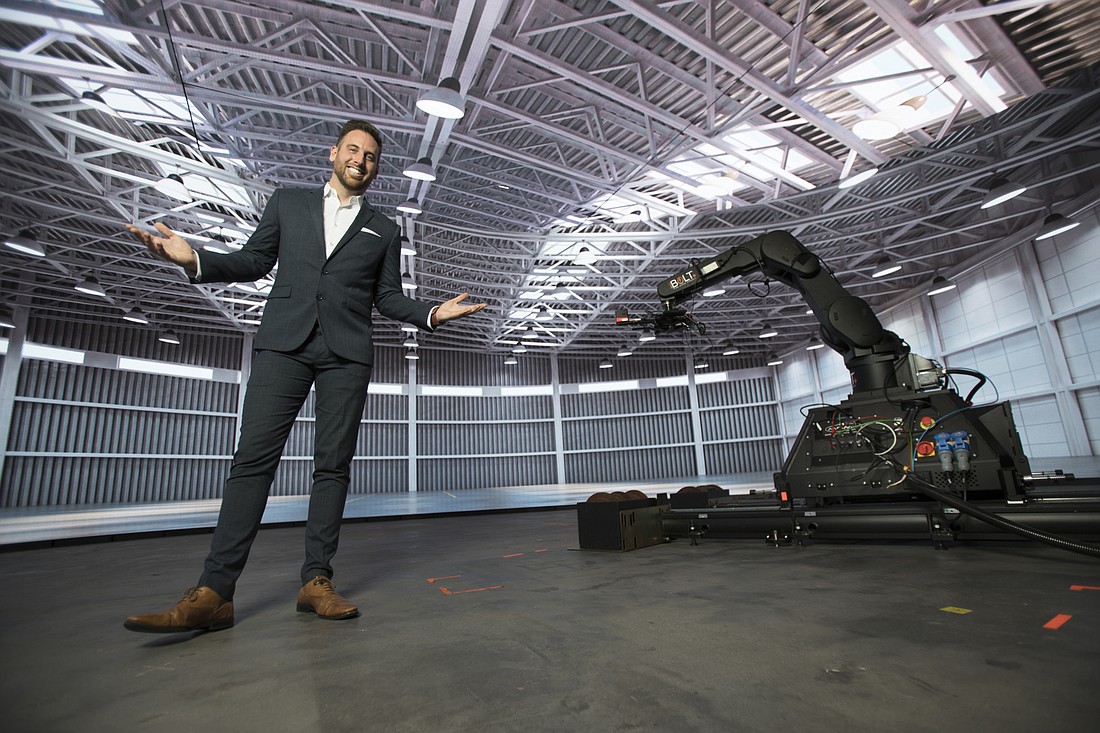- December 13, 2025
-
-
Loading

Loading

In the span of 20 minutes, a Tampa video production company transported its audience to three geographically diverse locations — all without traveling a single step.
At first, we were in a hangar-like warehouse. Then, a mountainous landscape resembling Colorado. Finally, a lush island, with plant fronds visibly blowing in the breeze. It was day, it was night, it was even the golden hour.
‘When they showed us this space, the bones of a 30-year-old mall, it took a little bit of seeing through it and past it to envision what it could be.’ Tim Moore, Diamond View Studios